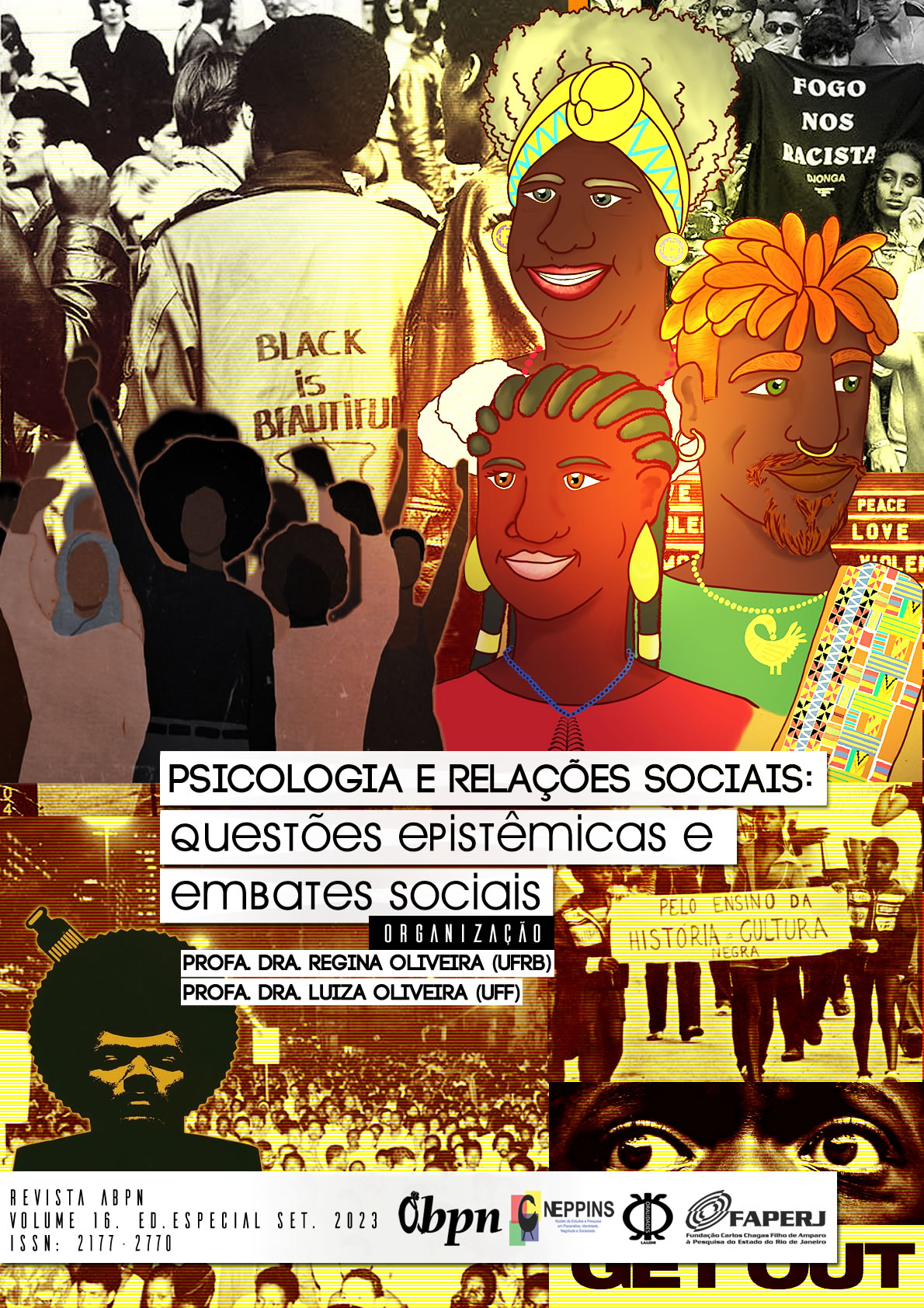RACISMO, GUERRA ÀS DROGAS E ENCARCERAMENTO DA POPULAÇÃO NEGRA: ENEGRECENDO O PENSAMENTO PSICANALÍTICO NO BRASIL NEGRO DEL PENSAMIENTO PSICOANALÍTICO EN BRASIL
Main Article Content
Abstract
This article rescues some reminiscences of Brazil's colonial past that constructed a social imaginary related to the dangerousness of Black men, the demonization of substances considered illegal, policies of incarceration and social confinement, based on the production of affective fear. From this perspective, the guiding question of the study is: how can psychoanalysis and the social sciences contribute, based on the idea of the war on drugs and incarceration, to the formation of an anti-racist discourse that promotes social justice and the mental health of the Black population? In this vein, the general objective is to analyze how psychoanalysis and the social sciences can contribute to the production of an anti-racist view by discussing concepts such as the war on drugs and the mass incarceration of the Black population. To this end, one of the objectives of this study was to present the important milestones related to alcohol and other drug policies in Brazil, linking the war on drugs to institutional racism and discussing the effects that institutional racism has on the mental health of the Black population, based on psychoanalysis. The contributions of Neusa Santos, Grada Kilomba, Isildinha Nogueira, Juliana Borges, Angela Davis, Lélia Gonzalez, Cida Bento, Frantz Fanon and Silvio Almeida were used for this construction. Concepts such as institutional racism, the notion of fear of Black people as a constant threat to white people, the use of language as a form of power and repression, the construction of psychiatric theories that supported confinement in asylums and prisons were important to elucidate the logic behind the mass incarceration of Black individuals and the war on drugs.
Article Details

This work is licensed under a Creative Commons Attribution 4.0 International License.
Copyright Statement
- Authors retain copyright and grant the journal the right of first publication, with work simultaneously licensed under the Creative Commons Attribution License CC-BY 4.0 which allows the sharing of the work with acknowledgment of the authorship of the work and initial publication in this journal.
- Authors are authorized to enter into additional contracts separately for non-exclusive distribution of the version of the work published in this journal (eg, publishing in institutional repository or book chapter), with acknowledgment of authorship and initial publication in this journal.
- Authors are allowed and encouraged to post and distribute their work online (eg in institutional repositories or on their personal page) at any point before or during the editorial process, as this may lead to productive changes as well as increase impact and citation of published work (See The Effect of Free Access).

